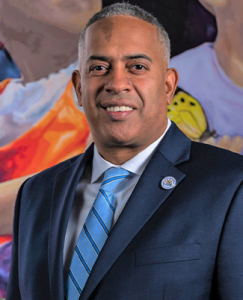City Council
520 Market Street
City Hall, Room 201
Camden, NJ 08102
Phone: 856-757-7115
Fax: 856-966-1437
Email: CityCouncil@camdennj.gov
Important Links
Government Structure and Services
Since July 1, 1961, the City has operated under a Mayor-Council form of government. Under this form of government, the City Council consisted of seven (7) Council members originally all elected at-large. In 1994, the City opted to modify the form of government to better address the changing needs of the citizenry. To that end, the City of Camden was divided into four (4) councilmanic districts, instead of electing the entire Council at-large. One Council member was elected from each of the four (4) districts.
The Municipal Election is held in November, with a Primary Election in June.
*Primary Elections are held the first Tuesday after the first Monday in June.
*Municipal Elections are held the first Tuesday after the first Monday in November.
City Council Meetings are held twice a month on Tuesdays. It’s meetings are open to the public. Special meetings have a 48hr notice in the Courier Post Newspaper, or may be called on as needed basis, call 856-757-7115.
CONSOLIDATION OF PUBLIC PORTION
The City Council of the City of Camden, in consultation with the Administration and the State of New Jersey, has decided that going forward, it will be consolidating the entire public portion of Council meetings which will now take place on the agenda prior to any council action regarding voting on pending resolutions. This change is consistent with the practice in most municipalities; is considered the standard practice throughout the State of New Jersey; and fully complies with the Open Public Meetings Act.
This revised process will also further enhance each public speaker’s ability to utilize their three (3) minutes of uninterrupted time to discuss pending resolutions or any other topic he or she wants to discuss. This will be the case since any questions raised during a speaker’s public comment will not be addressed during his or her speaking time but will be addressed after the speaker has finished. At that point, Council President may then seek to have the Business Administrator respond to any pending questions raised by the speaker during his or her time.
The above process essentially consolidates the public comment period which addressed pending resolutions with the more general public comment period allowing for discussion of any topic a speaker wanted which would normally occur at the end of a City Council meeting before adjournment. Following this revised public comment period, City Council will then consider and vote on all pending resolutions.
The overall goal of this revised process is to allow all public participants to speak before a vote is taken on any pending resolutions. We believe that, with this revised process, the overall goal will allow for a more vigorous and robust public discussion before voting on pending resolutions on the agenda takes place.
This revised process will also further enhance each public speaker’s ability to utilize their three (3) minutes of uninterrupted time to discuss pending resolutions or any other topic he or she wants to discuss. This will be the case since any questions raised during a speaker’s public comment will not be addressed during his or her speaking time but will be addressed after the speaker has finished. At that point, Council President may then seek to have the Business Administrator respond to any pending questions raised by the speaker during his or her time.
The above process essentially consolidates the public comment period which addressed pending resolutions with the more general public comment period allowing for discussion of any topic a speaker wanted which would normally occur at the end of a City Council meeting before adjournment. Following this revised public comment period, City Council will then consider and vote on all pending resolutions.
The overall goal of this revised process is to allow all public participants to speak before a vote is taken on any pending resolutions. We believe that, with this revised process, the overall goal will allow for a more vigorous and robust public discussion before voting on pending resolutions on the agenda takes place.









